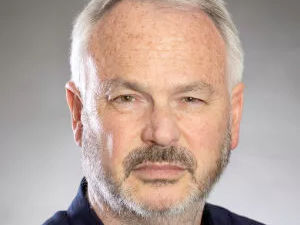Poll: Is the creation of more grammar schools a good idea?
Ministers have so far failed to show how they could prevent grammar school admission tests from being "gamed" by wealthy parents, MPs have warned.
In a new report, the education select committee said pupils should not be admitted to new selective schools simply on the basis of passing a test, because there is still a risk that access will be restricted to those whose mums and dads who can afford tutors.
The cross-party group of MPs also said the Government must demonstrate that creating a new wave of grammars will help close the achievement gap between rich and poor children.
Committee chairman Neil Carmichael called plans to expand selective state school education, first unveiled by Prime Minister Theresa May last autumn, an "unnecessary distraction", arguing that the focus should be on giving all young people the skills they need for the workplace.
Children are awarded places to grammar schools based on academic ability, typically through their performance on a test such as the 11 plus.
But in its report, the committee says it was told by Schools Minister Nick Gibb that creating a tutor-proof entrance test for grammar schools is a "holy grail".
If this is the case, the MPs conclude then selection tests " should not be the only basis on which admissions to grammar schools are based".
"The Government has yet to demonstrate how an admissions system could be designed in a manner that would be immune to gaming, or being reduced to the ability to pay", the report says.
It concludes: "The Government must demonstrate how the creation of new grammar schools will help close the attainment gap within the wider school system, not just for individual pupils."
Mr Carmichael said: "The Government has yet to prove the case for opening a new wave of grammar schools.
"The Prime Minister rightly talks of making Britain a great meritocracy. If the Government wants to push ahead with new grammar schools, it must demonstrate how this aids social mobility and improves educational outcomes for all, most especially those from disadvantaged backgrounds.
"The focus on opening new grammar schools is, in my view, an unnecessary distraction from the need to ensure all our young people are equipped with the skills to compete in the modern workplace. A broadly skilled workforce is crucial to the future success of the UK economy."
Mrs May has argued that grammars can help the life chances of poor pupils and that the current system sees ''selection by stealth'' based on parents' wealth and ability to buy houses near the best schools.
But proposals have attracted criticism, including from high-profile figures such as former Ofsted chief Sir Michael Wilshaw and headteachers.
Opponents argue that expansion will lead to segregation and a two-tier education system.
Last week, it emerged that new selective schools could admit the brightest 10% of children, which has led to concerns that they would be more elite than the current 163 grammars open in England.
It was also suggested that education chiefs are considering a ''national selection test'' to help prevent ''test tourism'', where parents enter their children for exams in different areas where they are considered easier.
Details of the Government's plans came from notes of meetings between ministers, education advisers and the Grammar School Heads' Association (GSHA).
Russell Hobby, general secretary of the National Association of Head Teachers (NAHT), said: "The government has lost the argument on grammar Schools. To focus on schools that ignore 90% of the population is a massive distraction. To pour millions of pounds into this system when state school budgets are at breaking point is a terrible use of public funds."
A Department for Education spokeswoman said: "Thanks to the Government's reforms there are nearly 1.8 million more children in schools rated good or outstanding than in 2010, and the attainment gap between disadvantaged children and their peers is narrowing.
"But there is more to do to make sure that all children, whatever their background, can go as far as their talents will take them.
"That's precisely why we have set out plans to make even more good school places available, in more parts of the country, including scrapping the ban on new grammar school places, and harnessing the resources and expertise of universities, independent and faith schools."
Shadow education secretary Angela Rayner, said: " When even the Conservative-dominated Education Selection Committee calls Theresa May's new grammar schools an 'unnecessary distraction', it's time that ministers finally sat up and took notice.
"There is a crisis in teacher recruitment, schools budgets are being cut for the first time in decades and hundreds of thousands of pupils are in super-sized classes.
"The Tories should be keeping their pledge to protect school funding rather than pressing ahead with this policy which will only make things worse for the majority of children."


